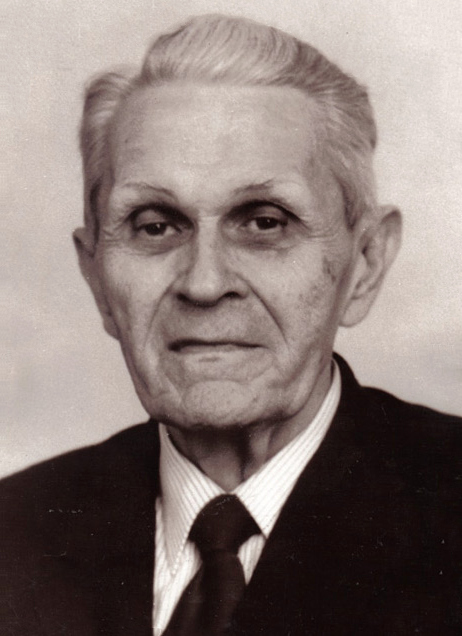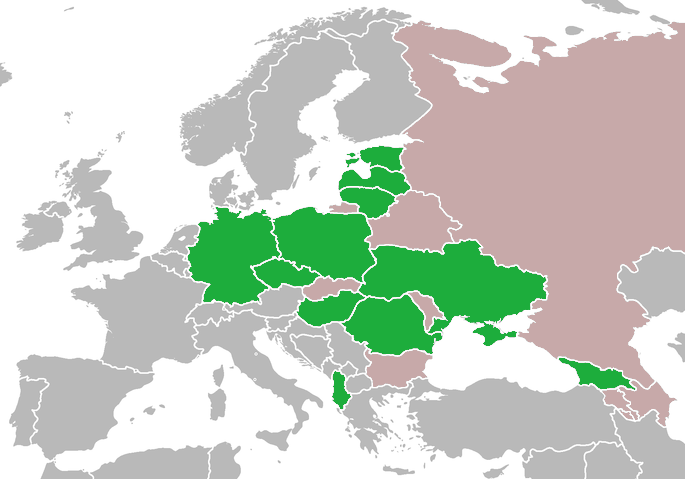|
Mona Muscă
Mona Octavia Muscă (born Mona Octavia Nicoară; May 4, 1949) is a Romanian philologist and politician. A former member of the National Liberal Party (PNL) and of the Liberal Democratic Party (PLD), she was a member of the Romanian Chamber of Deputies for Caraș-Severin County from 1996 to 2004 and for Bucharest from 2004 to 2007. In the Călin Popescu-Tăriceanu cabinet, she served as Minister of Culture and Religious Affairs from 2004 to 2005. Biography She was born in Turda and attended the Philology Faculty of the West University of Timișoara. Following graduation, she became assistant professor at her alma mater, teaching the Romanian language to foreign students."Secretul Monei" ("Mona's Secret") , ''Evenimentul Zilei'', 13 August 2006; accessed August 20, 2010 She was als ... [...More Info...] [...Related Items...] OR: [Wikipedia] [Google] [Baidu] |
Romania
Romania ( ; ro, România ) is a country located at the crossroads of Central Europe, Central, Eastern Europe, Eastern, and Southeast Europe, Southeastern Europe. It borders Bulgaria to the south, Ukraine to the north, Hungary to the west, Serbia to the southwest, Moldova to the east, and the Black Sea to the southeast. It has a predominantly Temperate climate, temperate-continental climate, and an area of , with a population of around 19 million. Romania is the List of European countries by area, twelfth-largest country in Europe and the List of European Union member states by population, sixth-most populous member state of the European Union. Its capital and largest city is Bucharest, followed by Iași, Cluj-Napoca, Timișoara, Constanța, Craiova, Brașov, and Galați. The Danube, Europe's second-longest river, rises in Germany's Black Forest and flows in a southeasterly direction for , before emptying into Romania's Danube Delta. The Carpathian Mountains, which cross Roma ... [...More Info...] [...Related Items...] OR: [Wikipedia] [Google] [Baidu] |
Romanian Democratic Convention
The Romanian Democratic Convention ( ro, Convenţia Democrată Română or Convenția Democratică Română; abbreviated CDR) was an electoral alliance of several democratic, anti-Communist, anti-totalitarian, and centre-right political parties in Romania, active from 1991 until 2000. The most prominent leaders of the CDR throughout the 1990s were by far Corneliu Coposu, Ion Rațiu, and Ion Diaconescu, all three members of the Christian Democratic National Peasants' Party (PNȚCD) - successor and political heir to the National Peasants' Party (PNȚ), active in the Kingdom of Romania between 1926 and 1948). The name of the CDR was coined by Sergiu Cunescu, the leader of the Romanian Social Democratic Party (PSDR), as stated in a late 1990s interview by former PNL re-founding president Radu Câmpeanu at ''Marius Tucă Show'' by talk show journalist Marius Tucă. History Political composition The core members of the CDR included the following political parties: * Chr ... [...More Info...] [...Related Items...] OR: [Wikipedia] [Google] [Baidu] |
Securitate
The Securitate (, Romanian for ''security'') was the popular term for the Departamentul Securității Statului (Department of State Security), the secret police agency of the Socialist Republic of Romania. Previously, before the communist regime, Romanian secret police was called Siguranța Statului. It was founded on 30 August 1948, with help and direction from the Soviet MGB. Following the overthrow of Nicolae Ceaușescu in 1989, the new authorities assigned the various intelligence tasks of the DSS to new institutions. The Securitate was, in proportion to Romania's population, one of the largest secret police forces in the Eastern bloc. The first budget of the Securitate in 1948 stipulated a number of 4,641 positions, of which 3,549 were filled by February 1949: 64% were workers, 4% peasants, 28% clerks, 2% persons of unspecified origin, and 2% intellectuals. By 1951, the Securitate's staff had increased fivefold, while in January 1956, the Securitate had 25,468 employees.Cr ... [...More Info...] [...Related Items...] OR: [Wikipedia] [Google] [Baidu] |
Evenimentul Zilei
''Evenimentul Zilei'' is a formerly physical and now exclusively online newspaper in Romania. Its name means "today's even (news)". History and profile ''Evenimentul Zilei'' was founded by Ion Cristoiu, Cornel Nistorescu and Mihai Cârciog, and the first issue was published on 22 June 1992.Media Index. Evenimentul Zilei Euro Topics. Retrieved 6 December 2013 The newspaper reached its peak daily circulation of 675,000 in 1993. In 1997 chief editor Ion Cristoiu quit and this job was taken by Cornel Nistorescu. The newspaper was purchased along with its parent company Publishing in 1998 by the German company (owned, in turn, by [...More Info...] [...Related Items...] OR: [Wikipedia] [Google] [Baidu] |
President Of The Chamber Of Deputies Of Romania
The President of the Chamber of Deputies of Romania is the deputy elected to preside over the meetings in the lower chamber of the Parliament of Romania. The President of the Chamber of Deputies is also the president of the Standing Bureau of the Chamber of Deputies, and the second in the presidential line of succession, after the President of the Senate. Election Last election: November 2021 The president of the Chamber of Deputies is elected by secret ballot with the majority of votes of the deputies. If none of the candidates receives the absolute majority of votes, the first two compete again in a second ballot, and the one with most of the votes wins. Role * Calls the Chamber of Deputies into ordinary or extraordinary session; * Presides over the Chamber's meetings; * Represents the Chamber of Deputies in the relation with the president, the Senate, the Government and the Constitutional Court; * Represents the Chamber of Deputies in the foreign relations; * Succee ... [...More Info...] [...Related Items...] OR: [Wikipedia] [Google] [Baidu] |
2004 Romanian Legislative Election
General elections were held in Romania on 28 November 2004, with a second round of the presidential elections on 12 December between Prime Minister Adrian Năstase of the ruling Social Democratic Party of Romania (PSD) and Bucharest Mayor Traian Băsescu of the opposition Justice and Truth Alliance (DA). Băsescu was elected President by a narrow majority of just 51.2%.Dieter Nohlen & Philip Stöver (2010) ''Elections in Europe: A data handbook'', p1616 Following 2003 amendments to the constitution which lengthened the presidential term to five years, these were the last joint elections to the presidency and Parliament in Romania's political history thus far. Campaign Parliamentary elections The main contenders were the left-wing alliance made up of the then incumbent Social Democratic Party of Romania (PSD) and the Romanian Humanist Party (PUR), and, on the other hand, the center-right-wing politics, right Justice and Truth Alliance (DA; ro, Dreptate și adevăr) comprising the ... [...More Info...] [...Related Items...] OR: [Wikipedia] [Google] [Baidu] |
Adrian Năstase
Adrian Năstase (; born 22 June 1950) is a Romanian jurist, academic/professor, blogger, and former politician who served as the Prime Minister of Romania from October 2000 to December 2004. He competed in the 2004 presidential election as the Social Democratic Party (PSD) candidate, but was defeated by the centre-right Justice and Truth Alliance (DA) candidate Traian Băsescu who pertained at that time to the Democratic Party (PD). He was the President of the Chamber of Deputies from 21 December 2004 until 15 March 2006, when he resigned due to corruption charges. Sentenced to two years in prison in July 2012, he attempted suicide before beginning his term in the penitentiary. Released in March 2013, he was sentenced to four years in another case in January 2014, but released that August. Biography Family background Năstase was born in Bucharest to a family that originated from Hanul de Pământ village, Tărtășești commune, Dâmbovița County. His father, Marian N� ... [...More Info...] [...Related Items...] OR: [Wikipedia] [Google] [Baidu] |
Prime Minister Of Romania
The prime minister of Romania ( ro, Prim-ministrul României), officially the prime minister of the Government of Romania ( ro, Prim-ministrul Guvernului României, link=no), is the head of the Government of Romania. Initially, the office was styled ''President of the Council of Ministers'' ( ro, Președintele Consiliului de Miniștri, link=no), when the term "Government" included more than the Cabinet, and the Cabinet was called the ''Council of Ministers'' ( ro, Consiliul de Miniștri). The title was officially changed to ''Prime Minister'' by the 1965 Constitution of Romania during the communist regime. The current prime minister is Nicolae Ciucă of the National Liberal Party (PNL), who has been serving since November 2021 onwards as the head of government of the National Coalition for Romania (CNR). Nomination One of the roles of the president of the republic is to designate a candidate for the office of prime minister. The president must consult with the party that ... [...More Info...] [...Related Items...] OR: [Wikipedia] [Google] [Baidu] |
Communist Romania
The Socialist Republic of Romania ( ro, Republica Socialistă România, RSR) was a Marxism–Leninism, Marxist–Leninist One-party state, one-party socialist state that existed officially in Romania from 1947 to 1989. From 1947 to 1965, the state was known as the Romanian People's Republic (, RPR). The country was an Eastern Bloc state and a member of the Warsaw Pact with a dominant role for the Romanian Communist Party enshrined in :Template:RomanianConstitutions, its constitutions. Geographically, RSR was bordered by the Black Sea to the east, the Soviet Union (via the Ukrainian Soviet Socialist Republic, Ukrainian and Moldavian Soviet Socialist Republic, Moldavian SSRs) to the north and east, Hungarian People's Republic, Hungary and Socialist Federal Republic of Yugoslavia, Yugoslavia (via Socialist Republic of Serbia, SR Serbia) to the west, and People's Republic of Bulgaria, Bulgaria to the south. As World War II ended, Kingdom of Romania, Romania, a former Axis powers, A ... [...More Info...] [...Related Items...] OR: [Wikipedia] [Google] [Baidu] |
Proclamation Of Timișoara
The Proclamation of Timișoara was a thirteen-point written document, drafted on March 11, 1990, by the Timișoara participants in Romania's Romanian Revolution of 1989, 1989 Revolution, and partly issued in reaction to the January 1990 Mineriad, first Mineriad. Organized as the ''Timișoara Society'' and other bodies of students and workers, the signers expressed Liberal democracy, liberal-democratic goals, which they saw as representing the revolutionary legacy. The best-known requirement formed the document's 8th Point, calling for all former Romanian Communist Party ''nomenklatura'' and Securitate cadres to be banned from holding public office for a period of 10 years (or three consecutive legislatures), with an emphasis on the office of President of Romania, President (''see Lustration''). Questioning the status of the governing National Salvation Front (Romania), National Salvation Front, the Proclamation argued that the latter primarily represented a small group of Communist d ... [...More Info...] [...Related Items...] OR: [Wikipedia] [Google] [Baidu] |
Lustration
Lustration is the purge of government officials in Central and Eastern Europe. Various forms of lustration were employed in post-communist Europe. Etymology Lustration in general is the process of making something clear or pure, usually by means of a propitiatory offering. The term is taken from the ancient Roman lustratio purification rituals. Background According to a 1992 constitutional amendment in the Czech Republic, a person who publicly denies, puts in doubt, approves, or tries to justify Nazi or Communist genocide or other crimes of Nazis or Communists will be punished with a prison term of six months to three years. In 1992, Barbara Harff wrote that no Communist country or governing body had been convicted of genocide. In his 1999 foreword to ''The Black Book of Communism'', Martin Malia wrote: "Throughout the former Communist world, moreover, virtually none of its responsible officials has been put on trial or punished. Indeed, everywhere Communist parties, tho ... [...More Info...] [...Related Items...] OR: [Wikipedia] [Google] [Baidu] |

.png)

.jpg)


